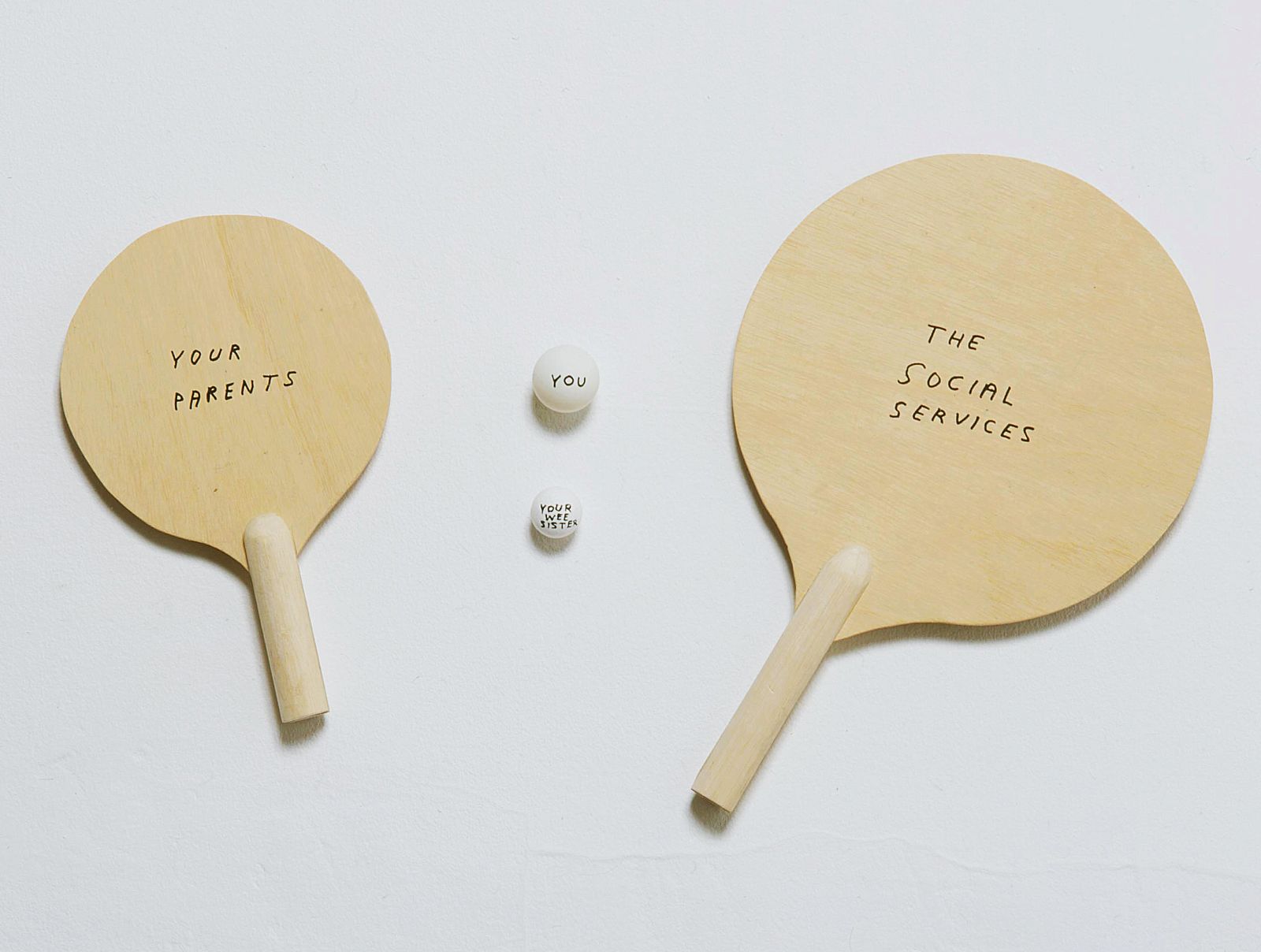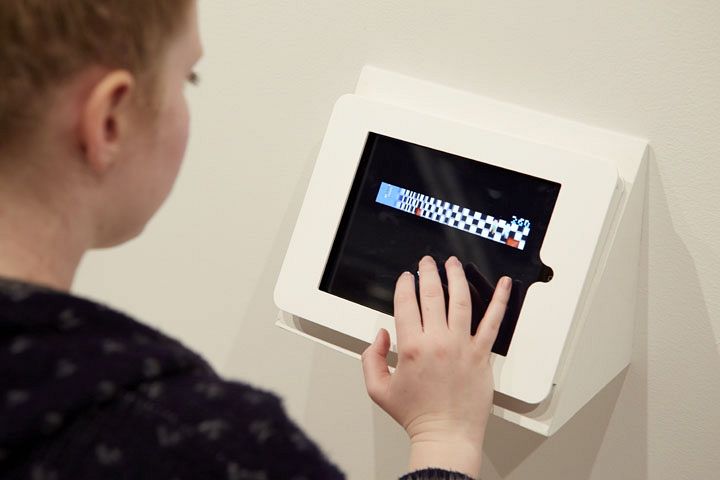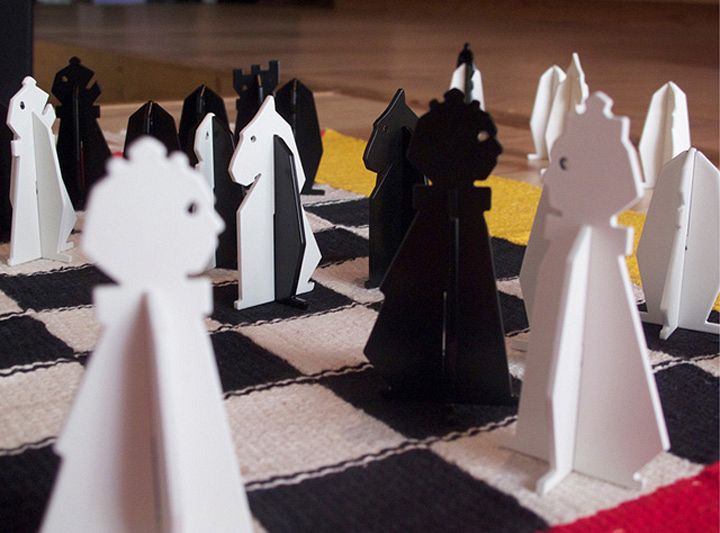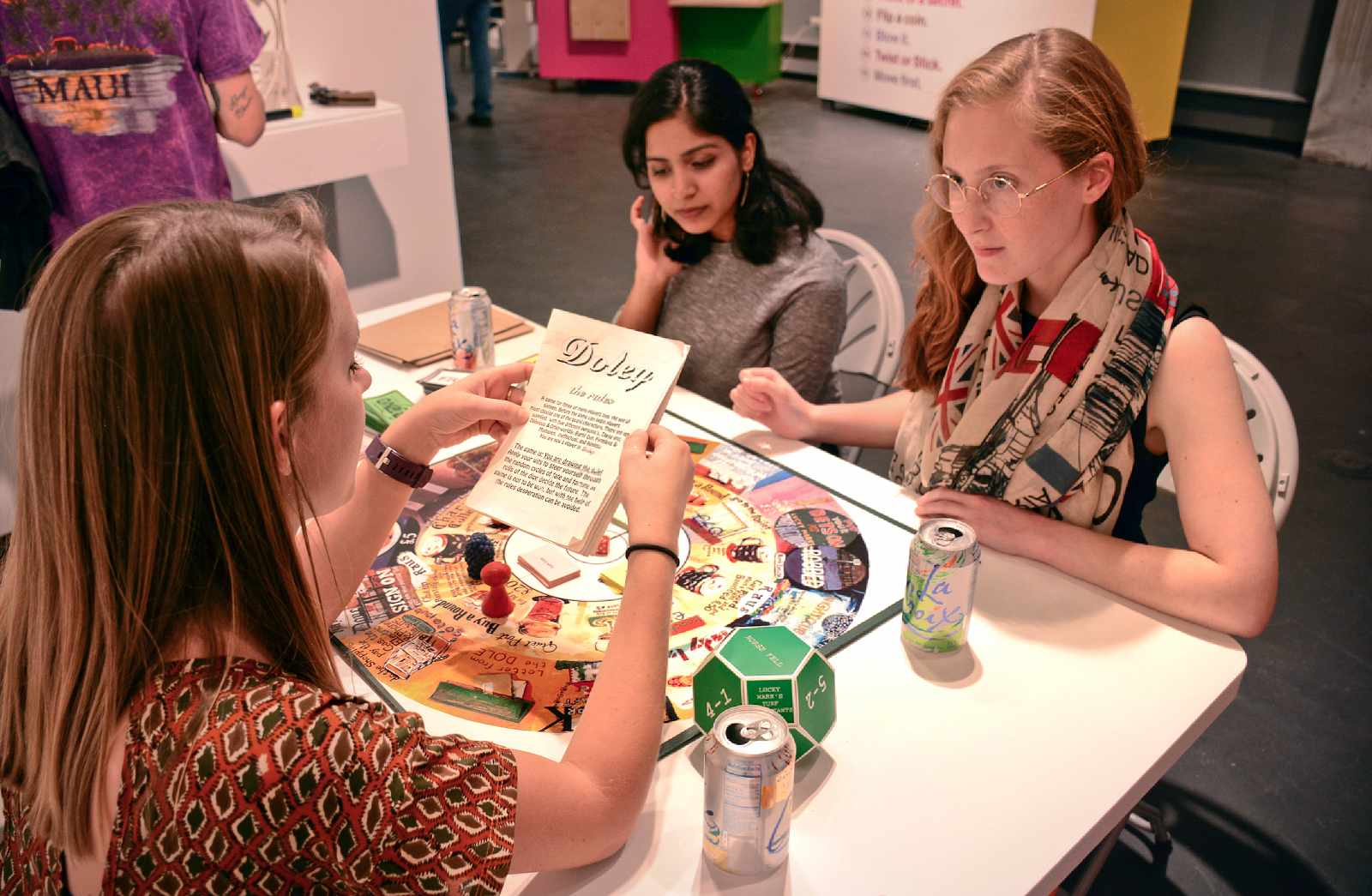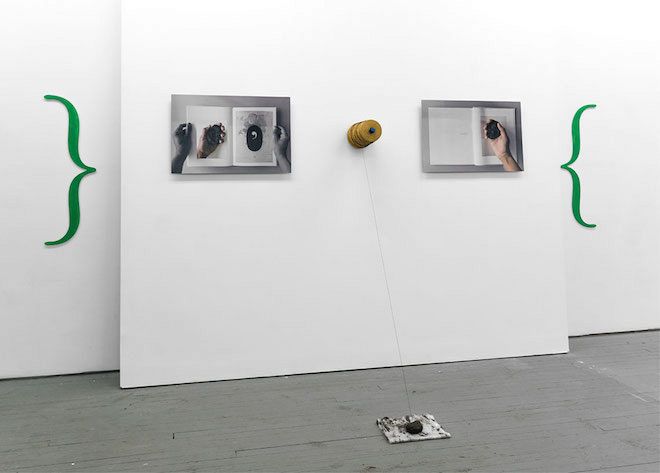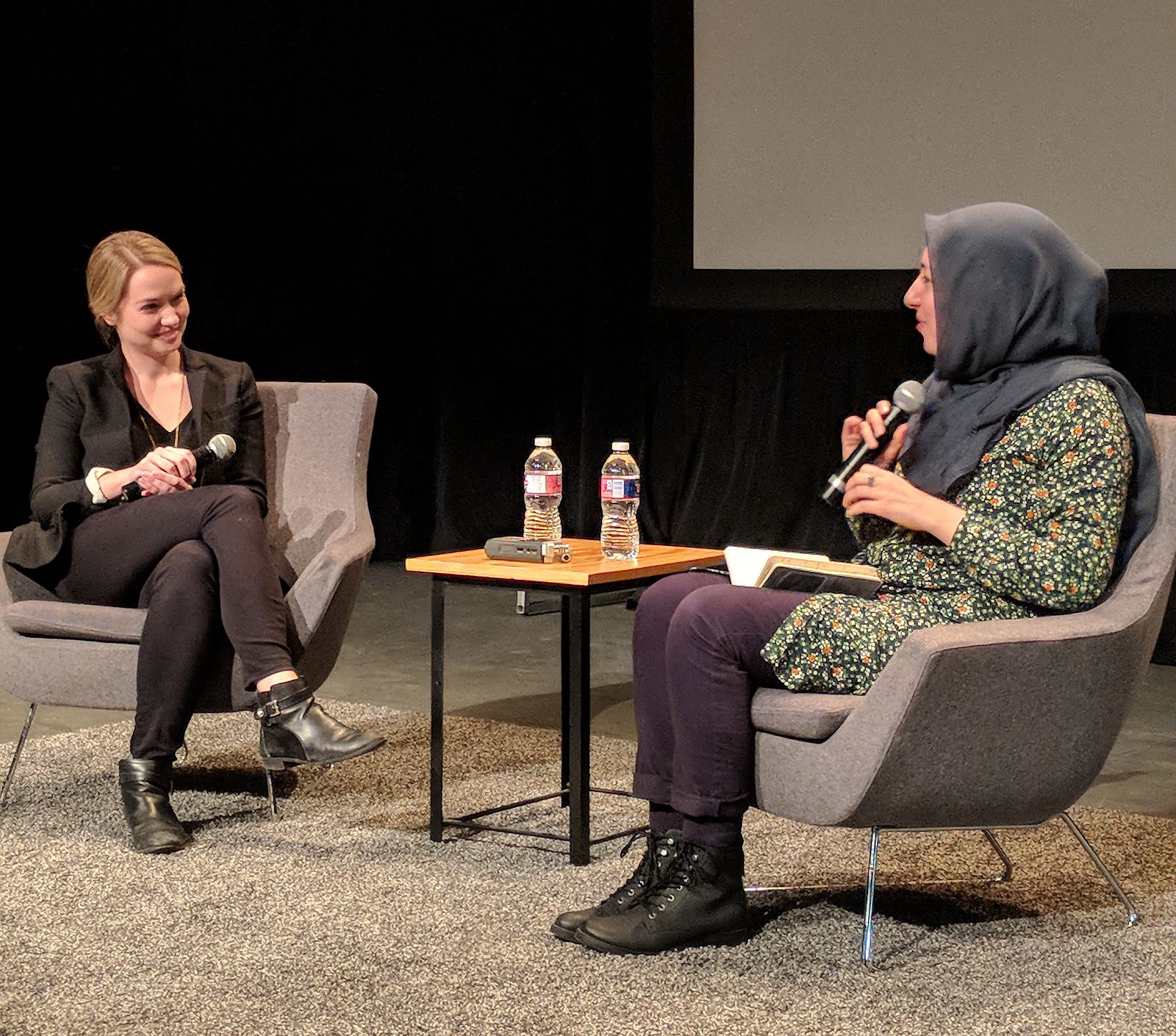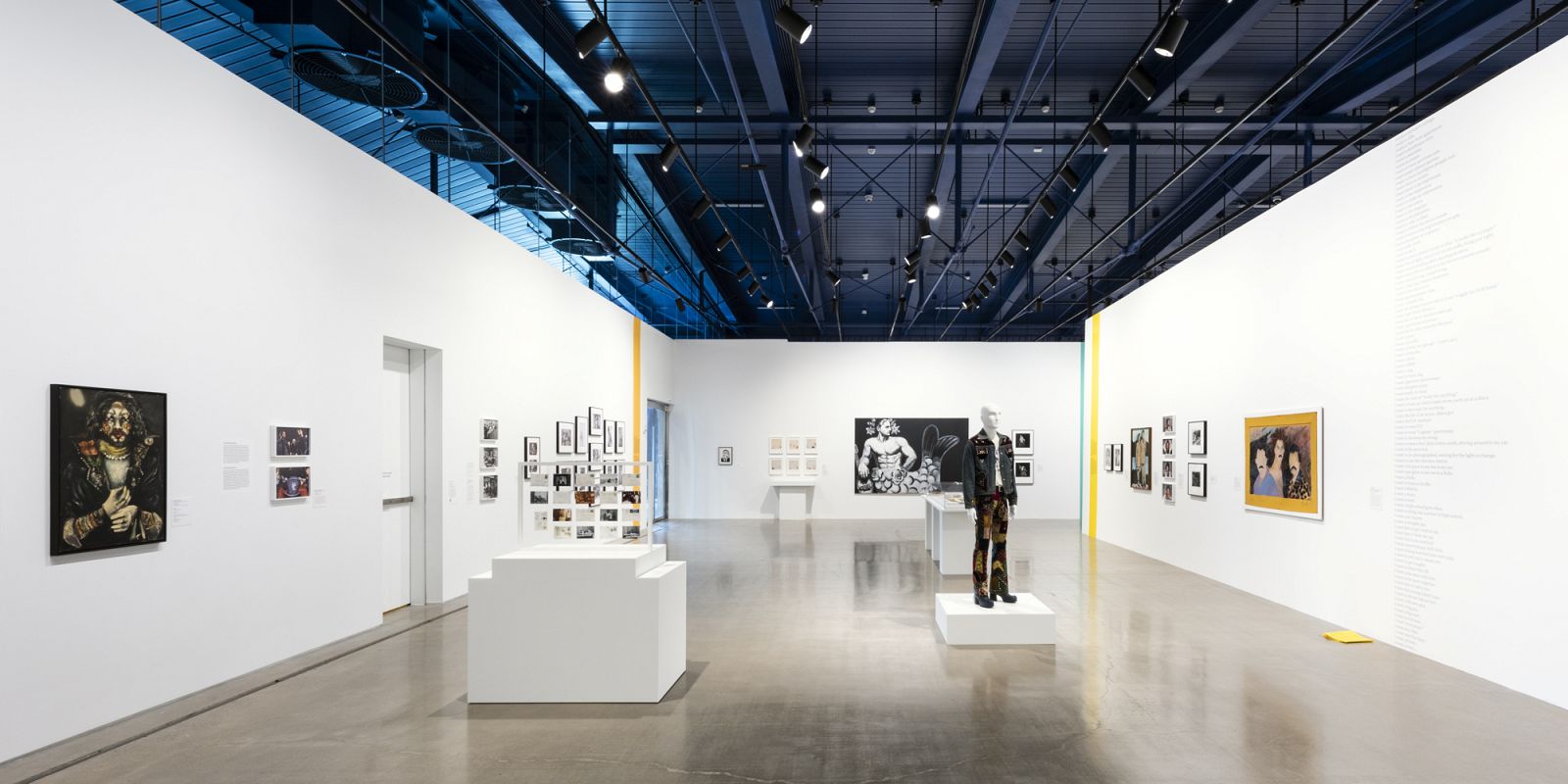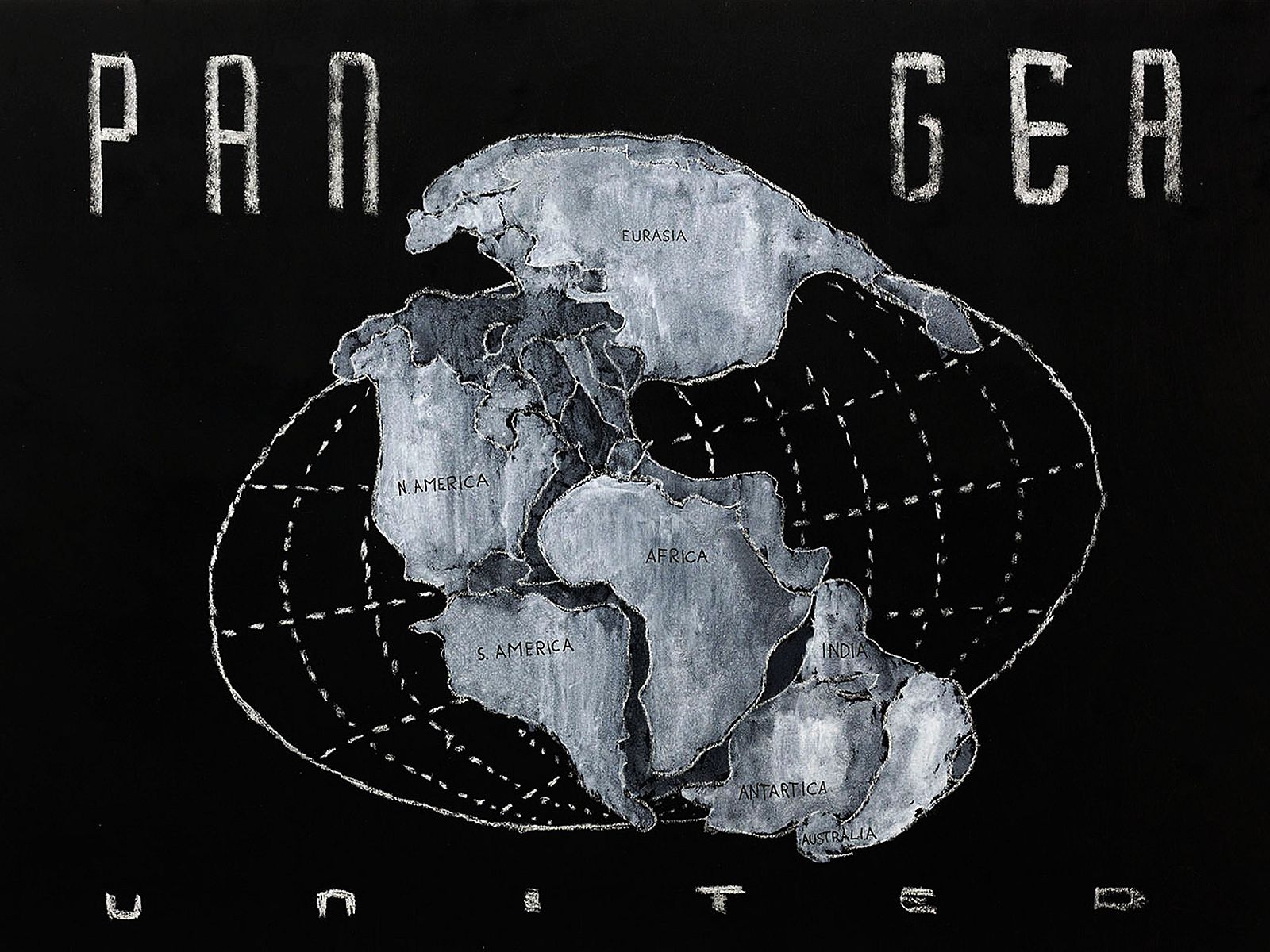“No vital periods ever began from a theory. What’s first is a game, a struggle, a journey.” – Guy Debord
Seeking the initial moment described by Debord, Push Play explores the work of artists who borrow from play and games to reveal social, philosophical, and cultural issues. From playfulness, to mathematical strategy, the artists in Push Play have mined the significance of games, reinventing them to create experiences that often involve the viewer and reflect on the nature of participation in art.
Artistic processes tied to game playing have historically attracted the avant-garde, most famously the chess master Marcel Duchamp. His artistic move had his chess partner in mind: you, the viewer. Games were also intrinsic to the work of war-addled Surrealists and Dadaists, the inventors of the exquisite corpse and automatic drawing, in their quest to upend the bourgeois pretensions of art and free the artistic imagination. In the 1960s and 1970s, the countercultural and anti-war Fluxus group and the New Games Foundation questioned capitalism and corporate culture by staging massive public games and city parks. Moving away from the classical chess period of kings, queens, and bishops, the works in this exhibition do not represent medieval figures of power but strategies of decision-making around contemporary issues. Among the arcade of objects in the show is a version of Guitar Hero by Cory Arcangel, hopscotch by Mary Flanagan, and Ryan Gander’s version of blackjack - while the more mystically inclined may gravitate toward Allan McCollum and Matt Mullican’s divining game.
Traveling in an easy-to-ship box, Push Play includes smaller works and digital software, as well as instructions for building larger projects. Charged with a do-it-yourself imperative, this exhibition provides source material from which venues can adapt and add to the materials provided according to the space, facilities and local context available. The checklist may be added to with contributions from the host venue's collections and archives, or can be the starting point for an exhibition that presents local artists' practices in relation to a broader art issue or event.
Push Play is an exhibition curated by Melissa E. Feldman and organized and produced by Independent Curators International (ICI), New York. Push Play was made possible, in part, by grants from the Elizabeth Firestone Graham Foundation and the Robert Sterling Clark Foundation, and with the generous support from ICI’s International Forum and Board of Trustees.
